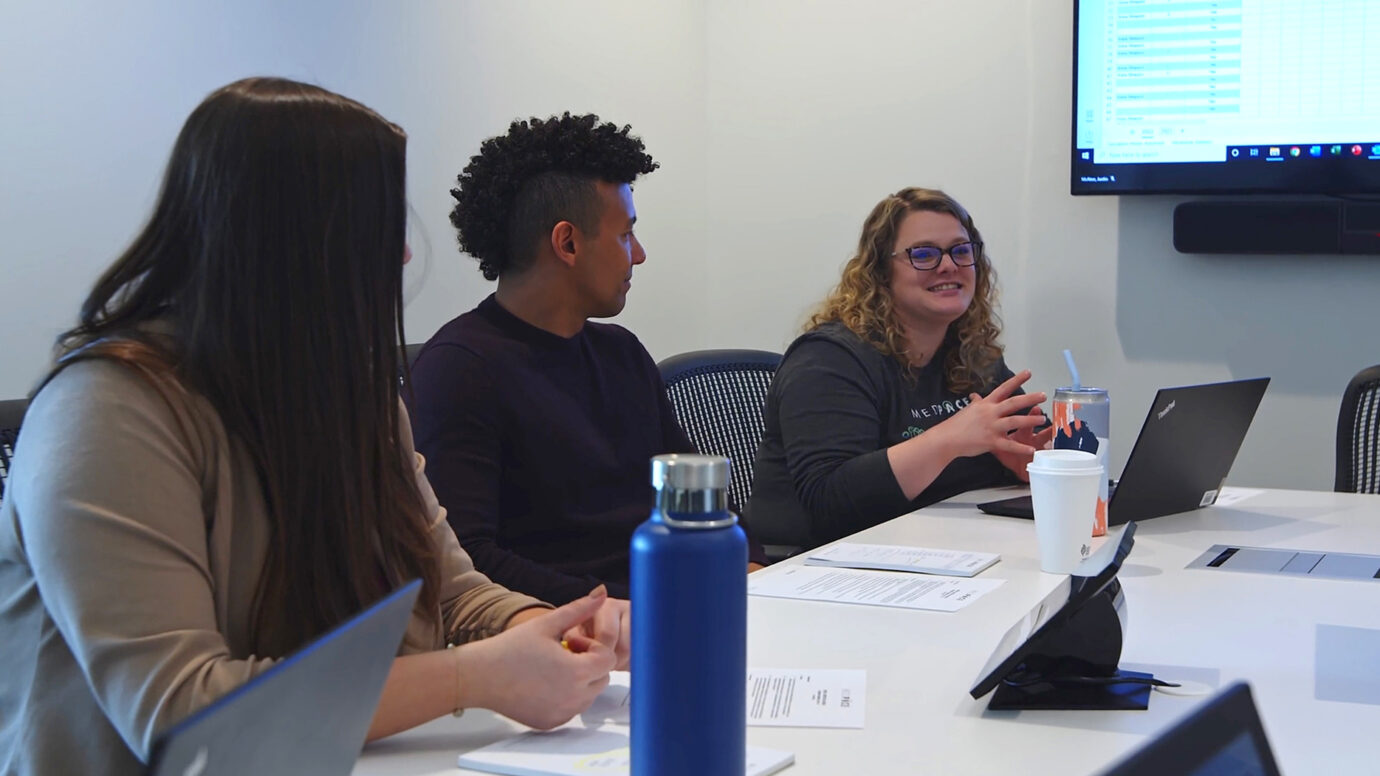
You’ve made it to the interview stage in your job hunt. You conquered the networking event and successfully submitted a revised resume. Now it’s time to ace your interview. We spoke with Medpace Recruiter Maddie O’Brien on interview prep, advice, and more in this Interview with a Recruiter.
At its simplest, why is interviewing important and how is it beneficial to both parties?
“Interviewing should be looked at as a conversation between two people,” Maddie explains. “The company is interviewing the candidate to see if they’re a good fit for the position, but this is also a chance for the candidate to interview the company.” You’ve heard it a hundred times, but are you really taking full advantage of your interview? Think about how the company’s values align with yours. Ensure you have a good understanding of the responsibilities of role. It can be easy for candidates, especially new grads, to get starstruck, but remember your must-haves in your job search.
What is some nerve-calming advice for candidates?
Changing your mindset to remember that, at its core, it’s just a conversation. Interviews are an opportunity for companies and candidates alike to get to know more about each other, meet with the person or people you’d be working with, and find out if this opportunity would be a good fit.
For many, anxieties before an interview are inevitable. If this is the case for you, Maddie shares a confidence-boosting tip that can help work in tandem with your nerves to help you put your best foot forward. Try adding in a Q+A practice session to your interview prep, Maddie recommends. Grab a friend or a family member or even a mirror and start rehearsing some answers to work out the kinks. “I know that sounds cheesy,” Maddie concedes. “But I really do think that helps.”
Do you have interview prep advice for new or upcoming grads?
Do. Your. Research. Aside from researching the position you’re interviewing for, browse the company’s website. Take a look at their values, their mission, and their goals. Educating yourself on the company can help you tailor your own questions for the interviewer as well as demonstrate skills many teams look for in candidates like resourcefulness and preparedness.
Always ask questions. Most interviews, regardless of job type or level, will have a space at the end for the candidate to ask the interviewer questions. Use this time to ask any questions about the role, the company (ideally based off of the research you’ve done), benefits, timeline, and any other relevant questions. This is an additional way to demonstrate essential skills like attention to detail.
What is your “hot take” on interviewing? Is there anything that makes you say, ‘don’t listen to that, here’s what you should do instead’?
The STAR method comes highly recommended from Maddie. STAR – situation, task, action, result – helps candidates form clear responses and answer each part of the question. With the STAR method, “you’re basically telling a story,” Maddie says. This comes in handy when candidates are asked a ‘tell me about a time when?’ question. Maddie gives a straightforward example of this: ‘I’m really organized, and I demonstrate this by working a part time job. Additionally, I’m a full-time student and I also hold a volunteer position at a local food pantry. This schedule can be hectic, so to stay organized, I use a planner to keep track of my commitments.’
What is the interview process like at Medpace?
Every company has a different interview process, but Medpace follows a standard formula to ensure a smooth and consistent experience. First, the Talent Acquisition team takes a look at the resumes that come through. If a recruiter decides a candidate could be a good fit, they’ll move the profile along for a phone interview. Phone interviews, sometimes called phone screenings, are the first step in Medpace’s interview process. Candidates will talk to a recruiter who will ask questions to get additional information on your background, work history, education, and more. These are not formal interviews – phone interviews are a way for recruiters to see if the candidate fits some of the basic role requirements. Take a breath knowing you won’t encounter any situational or technical questions this early in the process.
The recruiter will then meet internally to discuss, and if the hiring team decides to move forward, you will be invited for a final interview in-person. This final interview can look different depending on the department, but this will generally be a panel interview with Human Resources, the hiring manager, and members of the team.
Next Steps
Interviewing can be a high-pressure endeavor, but using Maddie’s suggested prep tools can give you the boost you need to communicate your skills with confidence and nail your interview. Despite the uncertainty that often comes with any interview process, remember to focus on your skills and just “trust the process,” as Maddie says.

Medpace careers